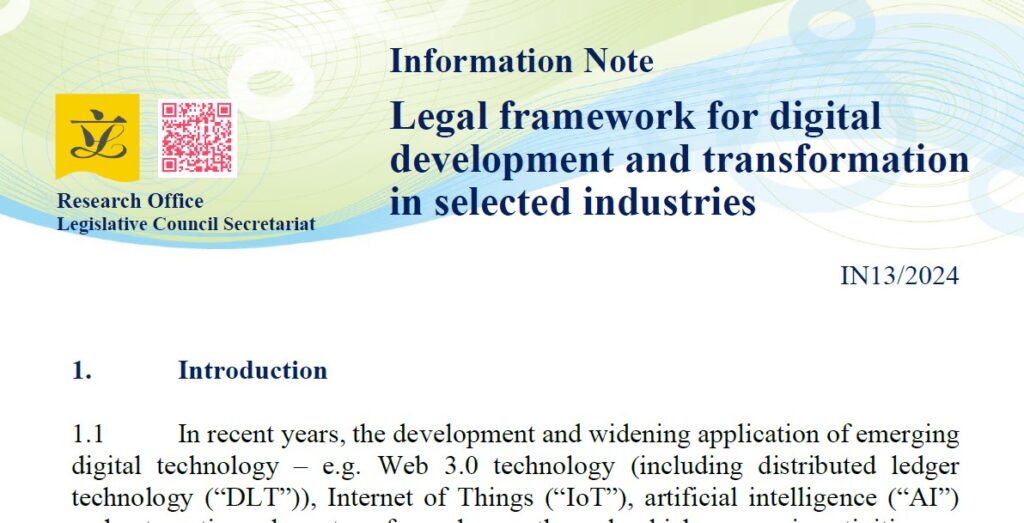
In recent years, the development and widening application of emerging digital technology – e.g. Web 3.0 technology (including distributed ledger technology (“DLT”)), Internet of Things (“IoT”), artificial intelligence (“AI”) and automation – have transformed ways through which economic activities are conducted, leading to the emergence of a “digital economy”. Specifically, Web 3.0 technology may disrupt the way to conduct business mainly through:
- the power of DLT to store all data on asset ownership and the history of conducted transactions;
- “smart contracts” that represent application logic and execution of specific tasks independently; and
- digital assets.
Such digital transformation has impacted a wide range of sectors. The trading and logistics industry and the financial industry – both being pillars of the Hong Kong economy – are among those sectors undergoing major disruptions. Web 3.0 technology can bring many opportunities and benefits to the trading and logistics industry, including enhancing sharing/distributing/verifying information exchanges and driving process automation.3 Many trading and logistics companies have begun to tap into the potential of digital transformation in improving efficiency, for example by using DLT-based platforms to track goods and leveraging IoT devices for real-time data collection and route optimization. For the financial industry, new digital technology has not only enabled new ways to conduct financial services such as decentralized finance (“DeFi”) (i.e. using smart contracts to execute lending, trading and insurance in an automated and decentralized way), but has also given rise to new financial infrastructure (e.g. crypto asset exchanges) and even new classes of assets (i.e. crypto currencies and tokenized bonds).
To realize the potential of digital economy, clarity in the legal framework is vital for instilling trust on technology, ensuring resilience of the platforms, and protecting the rights of consumers and businesses. Although transformations are already underway, legal frameworks in Hong Kong are still largely based on the traditional economy and have yet to catch up with the changes.
At the request of Hon Carmen KAN Wai-mun, the Research Office has conducted a study to explore the legal frameworks in other jurisdictions in facilitating and regulating digital economy.
The study focuses on two industries, namely the trading and logistics industry and the financial industry, given their importance to Hong Kong’s economy and their potential benefit from digital transformation. This Information Note first gives a brief overview on Hong Kong’s broad digital economy development efforts. It then, for each of the two industries, discusses:
- Hong Kong’s initiatives and legislative issues/gaps in pursuing digitalization;
- relevant international guidelines/recommendations on legal frameworks; and
- global trend in legislative reforms, followed by examples of Singapore for the trading and logistics industry, and United Arab Emirates (“UAE”) for the financial industry.
Source: Hong Kong Research Office Legislative Council Secretariat
